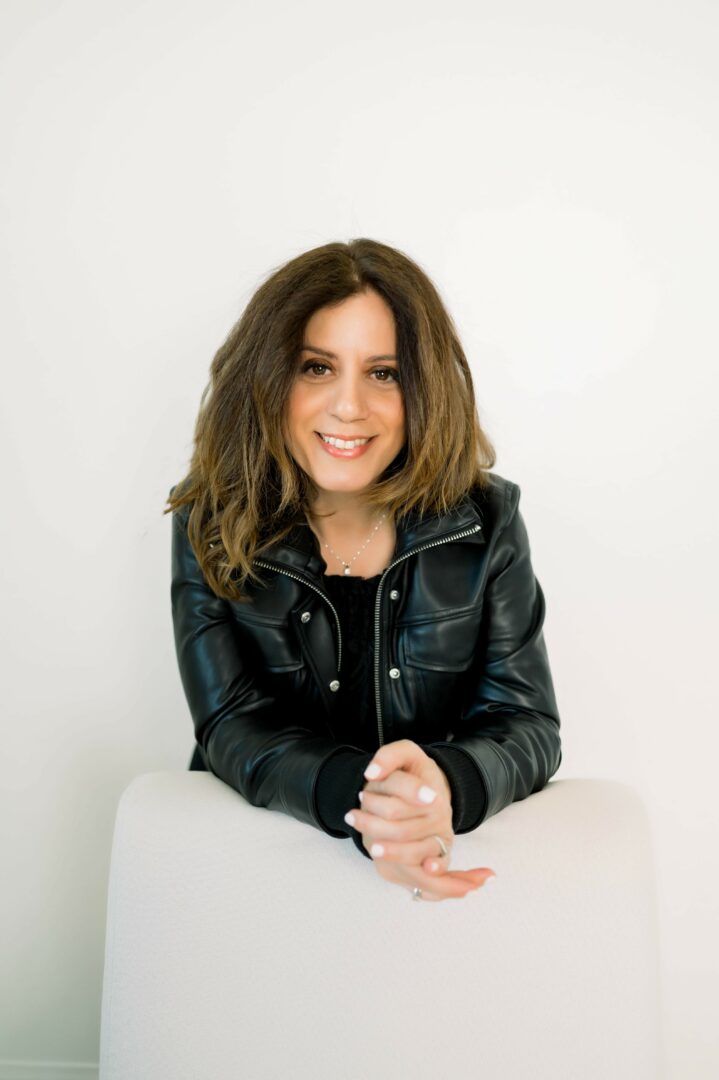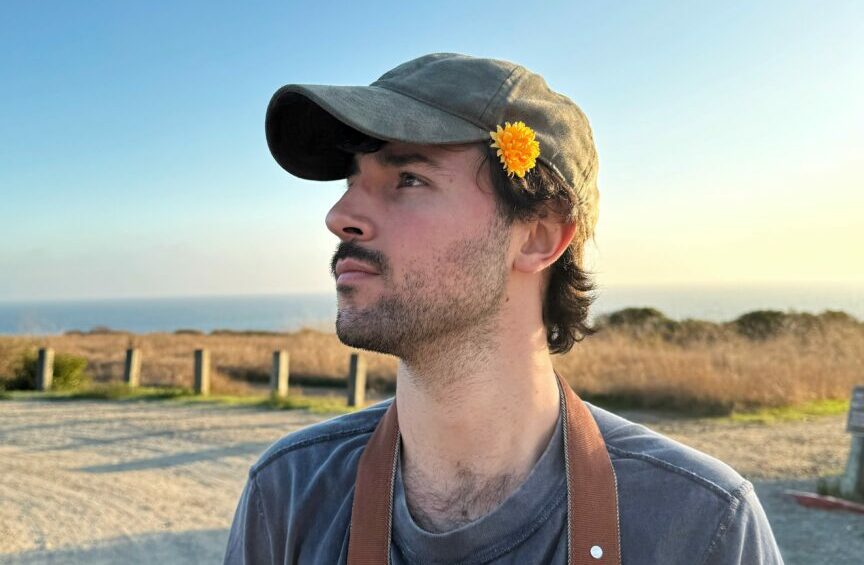We were lucky to catch up with Darrell Brown recently and have shared our conversation below.
Darrell, so happy to have you with us today. You are such a creative person, but have you ever head any sort of creativity block along the way? If so, can you talk to us about how you overcame or beat it?
I can honestly say that I have very rarely had writer’s block, and on those rare occasions, it didn’t last very long. Having been born before the autism spectrum was codified, I was labeled an anti-social child who strangely lost academic ground when forced to change from left-handedness to right-handedness in school. Once I made the adjustment, I used writing as a way of communicating on an equal footing to speech and it was often a more thoughtful outlet. Still, even when one loves to write, there are times when the well dries up and writing becomes an exercise of going through the motions. Looking back, moving through those times quickly and productively was due to several things:
Reading and travel expose one to many adventures and adventurous ideas. Reading took me to places I could never go and universes I had never imagined. And travel allowed me to meet people and other living things and witness amazing events and traverse bizarre environments that gave my imagination more realms to play with. Truth is not only stranger than fiction, it is often more unbelievable. I have seen a Hooter’s waitress punch out a deviant pancake house mascot at a bus stop, been lost in a swamp, been locked in a pyramid, toured the frozen dead, swum with barracudas/ manatees/ sharks, been inside a uranium mine during detonations, been swiped at by a father black bear and survived a rooftop earthquake in Mexico City. I have seen great art and heard great speakers, writers and politicians. I have commiserated with the poor, met the dreaming middle class and encountered the wealthy of several continents and sampled cuisine that would fit prominently on those fearmongering, dare-to-eat-this shows. I have huddled in a basement as a tornado hopped over the house I was staying in, happily won and miserably lost prestigious awards and contests, spelunked and scuba-dived, survived blizzards and traversed roads that look like Wile E. Coyote cartoon backdrops. All of these experiences—nightmarish or wonderful—fueled my writing and other projects.
Another preventer of writer’s block is having a real job that at least partially stimulates the creative juices. As a teacher, I had to think on my feet and utilize my talents in different ways while paying the bills that would otherwise put undue stress on writing deadlines that my livelihood might otherwise depend upon. And I encourage people to use those talents directly on the job. I wrote the teacher skit/ school play every year. I offered myself as consultant for any colleague who needed help with speeches, difficult lessons, etc. And I sponsored student attempts to compete in artistic competitions. Another benefit of the bill-paying-job is that it restricts you from being free to write whenever you feel like it. I found this causes a build-up in desire to get at some projects, so that when the time comes when you can write, you cannot help but pour out ideas. Hopefully, you have jotted down and outlined plenty of great stuff to choose from and can pick and choose from wonderful gems. And if one becomes stale, put it on the back burner and tackle another. Your mind will solve the blockage of the first project when it wants to, down the road.
An additional obstacle remover of writer’s block early on and throughout a writing career is to experiment with different styles, genres, approaches, and tropes, even if you don’t think you would be very good at them. Emulate, parody, lampoon and pay homage to the greats and the famous experimenters. I had no intention of doing romances, yet I cowrote a romance novel in college for the challenge. I routinely attempt my spin on horror, mystery, western, and science fiction set-ups, just to see what I can do. But I will also occasionally try stream-of-consciousness, coming-of-age, war, historical fiction, existential, fantasy, autobiographical, broad comedy, adolescent lit, epics, slice-of-life, adventure, etc. I may not be good at these, and I may never use the finished product, but the challenge and the exercise are invaluable and sometimes they spark an idea when my usual suspects are blocked. On a few occasions, the product was so fun and rewarding that I could add it to my top twenty-five things I’ve ever written.
The last thing I think helps with writer’s block is people-watching. Finding a nice place where one can avoiding seeming stalkerish and simply enjoy the company of others… from a discrete and observable distance. Watching and listening to others speak and behave in the way that they do in real life is a sure-fire way to develop interesting characters and unexpectedly uncover a plot or issue that would make for a good story. Sitting down in the milieu of a comic convention lobby or an airport or a food court or at an outdoor sporting event or volunteering at a shelter can be illuminating. Nothing excites the writing juices like discovering a character who is based on the interesting eccentricities or rhythms or nuances or obstacles plaguing real people.
Great, so let’s take a few minutes and cover your story. What should folks know about you and what you do?
From very early on, I discovered that I was adept at three things: storytelling, creating activities that entertain others and teaching—all of which are variations of the same thing. I have retired from teaching now but continue to help others with their own writing projects or understanding of difficult academic demands. I continue my lifelong habit of story, novel, play and poem creation, never resting on exploring themes and ideas and approaches to fiction.
And, since 2016, I have set a personal goal of codifying, revamping, modifying, and updating board games that my family has created over the years, occasionally creating a new one from scratch. My family has a history of more than sixty years of creating board games and I continued that legacy throughout my life and now hope to leave the finished products in the hands of the next generation. Fortunately, I have extended family members who have a game night as their regular routine and there is a large population who have rediscovered the board game and the industry has had a recent resurgence.
I am also currently working on my 60th book and my sixth mystery novel in collaboration with my brother. When I was young, I was daunted with the news we would get of Stephen King writing 2,000 words a day or Ray Bradbury having written 500 short stories and counting, but it adds up quickly over a lifetime.
I suppose teaching, writing, and game-making are special to me because they tap into the art of creation.
There is always a challenge to make an activity or lesson plan that will motivate a wide variety of learners to engage in, understand and retain a concept. There is nothing more rewarding than imparting knowledge and then seeing it applied. It is doubly special when I have gotten a student to smile and feel good about themselves in a world where they are beset with forces that are constantly bringing them down.
Similarly, turning an idea for a story into a well-crafted narrative that will amuse, scare, fascinate, or reflect upon a reader’s own experiences is special, although the payoff is less immediate. That is why I try to have oral, dramatic readings on occasion, and find great value in writers’ groups and other sharing platforms.
Game creation is special in many of the same ways. It is a challenge to go from inception to finished product without knowing if the outcome will be successful, but trying to anticipate situations and rules that hypothetically may come up and need to be addressed. The reward is the test runs that either succeed or hilariously fail from some unforeseen flaw that can only be discovered through trial and error. And then comes the satisfaction of patching the leak and righting the ship once again.
There is so much advice out there about all the different skills and qualities folks need to develop in order to succeed in today’s highly competitive environment and often it can feel overwhelming. So, if we had to break it down to just the three that matter most, which three skills or qualities would you focus on?
One thing that helped me on my journey was reading. I was taught phonics and word recognition long before I started school and had an early advantage. By the time I was in public school, I was reading voraciously. An access to free books and a variety of them was essential to build my imagination and to give me the desire to add to their numbers. Reading taught me vocabulary, expression (and indirectly public speaking), perspective and patience, among many other things. I encourage people to make it a lifelong habit. It is like being enrolled in continuing education without the expense or hassle.
Travel was also essential. It did not have to be getting up at 4:00 AM and on the road for a family vacation to something mysterious, historical, or corny. Just simple exploration locally–adventures in the city or at a park or lake or anywhere out of the comfort zone / neighborhood was invaluable. Later, when affordable, I found it was worth scraping together to go to more exotic places. I firmly believe that our current problems within our country and the world stem from people not seeing how others live and interacting with the varied cultures and lifestyles that make up our world. The lesson you learn immediately is that everyone is the same. They have similar problems, familiar joys and are not better or worse, just people. And I caution everyone if possible to never put off travel until old age, because there are no guarantees of your health if and when you get there or if the places you want to experience will even exist or be safe to visit as time passes.
Lastly, it is helpful to listen respectfully to the concerns, input, viewpoints and fears of others. Civilized debate is healthy, and playing devil’s advocate is instructive, but sometimes just listening without responding with potentially underlying judgment is so valuable. It often helps the speaker to process their thoughts and gets to the heart of issues that superficially may have seemed daunting or insignificant. Early in life I tried to be a fly on the wall, absorbing attitudes, approaches, confessions, rants, negotiations, and debates. People can do this at a young age. The hard thing to do is to resist engaging and wanting to make points. As an adult, there were various classes and seminars that promote active listening, and these were helpful to reinforce neutrality when I became more opinionated.
What was the most impactful thing your parents did for you?
My parents provided me with many things, but one that sums most of the others up was a good environment to thrive. The home was safe. The rules were clear. The consequences were not negotiable. Love of travel was encouraged. Love of learning was reinforced. The lessons of history and the importance of education were respected, while social inequities and injustices were discussed and brutality was exposed. A healthy skepticism and a moral framework were constructed. Responsibility was leased and parceled out carefully. Opportunities to learn were always available, be it trips to the library or guided viewing on television. By that latter remark, I mean my parents talked to the tv and called it out when it underplayed something or lied (commercials, e.g.) or overplayed something or attempted to indoctrinate. And for the most part, my parents let me be myself and develop without having to follow in their footsteps or be something they always dreamed of having a child grow up to be. Not everything was hunky dory. I had some rebellion and some shock at transitioning into a life without being home, but the consistency of my upbringing made maintaining a work ethic and dependable job performance just a normal part of life.
Contact Info:
- Other: email: [email protected]









